Don't Say Anything
Guess why (i.e., who) we’re still talking about “Missing Richard Simmons”
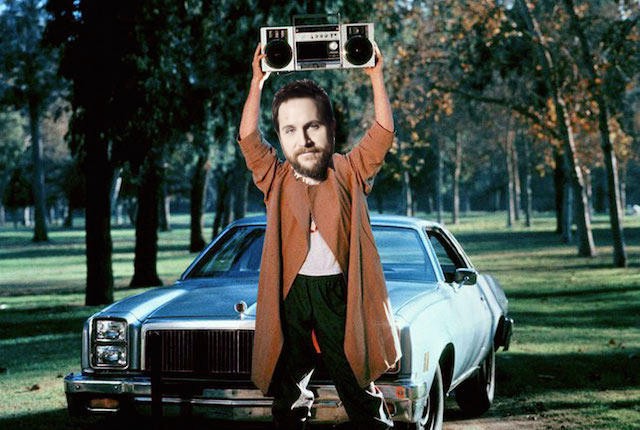
How much clearer could it be that this podcast phenomenon was a bizarre exercise in locating but perhaps not observing personal boundaries? Dan Taberski went for the full Cusack:
Unsure if Simmons would even know how to listen to a podcast online, Taberski decided to deliver the episodes straight to his door.
“Sometimes I think of Richard Simmons like my grandmother, like I’m not quite sure if he knows how the internet works,” he said. “So it was literally just putting what we had done into a boom box and putting it on his stoop, and to get his reaction so that we would know that he had heard it.”
Podcast Creator Left a Boom Box Outside Richard Simmons’ Home in Hopes He Would Hear the Show
Quick reminder.
Camille, "Fontaine de lait"
What are you like?

If you’re like me, you wander around each day in a haze of despair and self-recrimination, as memories of every terrible thing you’ve done over the course of your life flood your consciousness unbidden and with no easy method for dispersal. You can barely go a block without being overwhelmed by the essential sadness of everything, from the quotidian pain you can read on the faces of strangers to the sheer futility of human existence you see everywhere you look. Observing a small act of kindness should provide at least a brief moment of respite but it actually makes things worse, since you know how rare it is and how the majority of our actions are based in selfishness, fear and indifference. Your shoulders slump as if they are bearing the weight of the world, which in many ways they are, but it’s even worse to realize that none of it has any meaning and when you finally pass on all this suffering will have counted for naught and every second you have been cursed by consciousness has been a empty slog from nothing to nothing. Also if you’re like me you were crazy about Camille’s Le fil a decade ago and then promptly forgot about her. Turns out she’s got a new one coming soon. Here’s a track from it. Enjoy!
New York City, March 28, 2017

[No stars] The darkness was back as if there had never been anything but darkness. Water gurgled under a loose paving brick, and a second exploratory step on the spot sent a muddy splash up onto the shoe. Spring plantings sat in pots on a handtruck in the rain as a crew stooped over the sidewalk beds. The rain gained pattering force. Most of the mud rinsed off the shoes. A napkin sagged where it was stretched to keep rain off the lid of the coffee cup. For a while for the homeward commute there was only a drizzle, but uptown the rain was drenching again. It came off the Apple Store with a sound like a bathtub running.
If You're Going To "Quit Twitter," Don't Hang Around To Fave
I can see you lurking.

You know the guy. He is Over Twitter. He swears off Twitter because it’s full of shit opinions, breaking-news terrorism, and puns everyone thought of but no one wanted to be the one to actually say. In other words, it’s an agora full of fools. (Guess what, you and I are the fools.) We don’t get to choose who shows up, but we can try (very often in vain) to filter out what we see. It’s far from perfect, but it’s what we’ve got, and you know, I can’t wait till it’s gone either! Just to see what’s on the other side.
But he is NOT one of those fools. He will not suffer us gladly. This guy is better than, above, superior. He sees Twitter for what it is: an amplifier for humanity’s least charitable opinions on everything from sandwiches to Chrissy Teigen. You know what? This guy is pretty much right. People suck, they say bad things, and megaphones make everything more annoying. So why does he still hang around here?
I have no problem with people taking the Tina Fey approach from the start, and being like, “Objectively, that looks like a whole shitstorm I don’t have time or appetite for.” What a wise and abstemious thing to say; I am envious of their resolve. But then there are the rest of us, who go to Twitter as a source of news, entertainment, company, resources, encouragement, and debate. We live here, in this shit town, and we know it’s a shit town, but we’re too embedded to leave now. Also, we don’t really want to leave. We talk about doing it a lot and sometimes we go away for a while, but we’d never write it off entirely, because so much of our life is here now.
I’m also fine with people deciding Twitter sucks and leaving and never telling us about it!
What I’m not fine with is people who pull a late-onset Tina Fey, vociferously “leave” Twitter, only to come back, and back, and back again for more. These people have a sad, tortured relationship with this microblogging service, because they need it, they want it, they love to hate it. Which is to say they love to hate themselves. They creep back. They look and they scroll and they favorite the dark jokes they still deem funny.
“It’s a waste of time and energy,” they say. “I want to read it on my own time. I only look at it to follow my favorite brands and jokesters.” That’s actually fine—I’m not saying you have to produce actual tweets in order to have the privilege of favoriting them. Consume all you want! But you cannot say “fuck Twitter” and then favorite a bunch of hilarious tweets. The thing you proclaim to hate—the twittersphere in the aggregate—is producing the good tweets, and I’m sorry buddy, but you’ve gotta take the bad with the good. And don’t give me that “My tweets are bad” bullshit. What’s so special about you that you suck more than we do?
No, you cannot say “fuck Twitter” and then hide out in a corner and fave. If you like tweets, and use the heart button to tell someone so, I’m sorry to say: you like Twitter. What you can do is say “fuck myself,” and then just get over yourself and tweet.
The Continued Existence Of The Internet Is The Worst Outcome For The Future Of The Internet
How do things get better? They don’t! Why do you think that they would? How ignorant of history do you have to be that you can somehow see a positive solution to this uninterrupted nightmare?

In response to a Pew Research Center survey about “the potential impacts of online social interaction over the next decade,” industry analyst Susan Etlinger predicts:
“In the next several years we will see an increase in the type and volume of bad behavior online, mostly because there will be a corresponding increase in digital activity. … Cyberattacks, doxing, and trolling will continue, while social platforms, security experts, ethicists, and others will wrangle over the best ways to balance security and privacy, freedom of speech, and user protections. A great deal of this will happen in public view. The more worrisome possibility is that privacy and safety advocates, in an effort to create a more safe and equal internet, will push bad actors into more-hidden channels such as Tor. Of course, this is already happening, just out of sight of most of us. The worst outcome is that we end up with a kind of Potemkin internet in which everything looks reasonably bright and sunny, which hides a more troubling and less transparent reality.”
That’s the worst outcome? That’s just like life! Good luck, it’s all nightmares until it ends, which cannot come soon enough but of course won’t. [Via]
The Future of Free Speech, Trolls, Anonymity and Fake News Online
Germans Love White Asparagus And Austrians Love Chanterelles
Deutschland (and Austria) über us.

Once upon a time there was — Es war einmal, as the Germans begin their benign and uplifting fairy tales — a German couple who lived in Italy, where the olive oil flowed like wine, and the wine flowed like water. An American friend of the German couple in Italy came to stay, expecting — not unreasonably, I think — several days of tomato-based, pasta-drenched gastronomic hedonism. What happened instead was that the German husband bid his wife and their guest Auf Wiedersehen, and promptly took off for the fatherland on his motorbike — a twenty-hour round-trip — in order to procure several kilos of highly sought-after contraband, without which their meals simply would not do.
What comestible’s presence could be so crucial, so non-negotiably imperative, that they sent a man whose culture is otherwise known for its logic, reason and efficacy on a sleepless, crazy-eyed sojourn across the Continent? Truffles, perhaps, freshly unearthed thanks to a specially trained porcine detective? Foie gras? One of those terrifying-sounding banned cheeses with the maggots that supposedly make them taste “better”? Ha ha ha no, those expensive, bizarre edibles are French (and Sardinian, in the case of the maggot cheese).

Was it, then, some highly perishable blood and liver sausages, their besmirched reputation on the mend? Or perhaps a trough of Spätzele, Germany’s hearty (and heartburn-inducing) version of pasta? Nein. It was a bunch of damned white asparagus. White asparagus, or Spargel, is in season for the next three months and the next three months ONLY, you see, and when short-seasonal produce is in season, the German-speaking lands of Europe are Santa Cruz circa 1982 and the produce is the Grateful Dead.
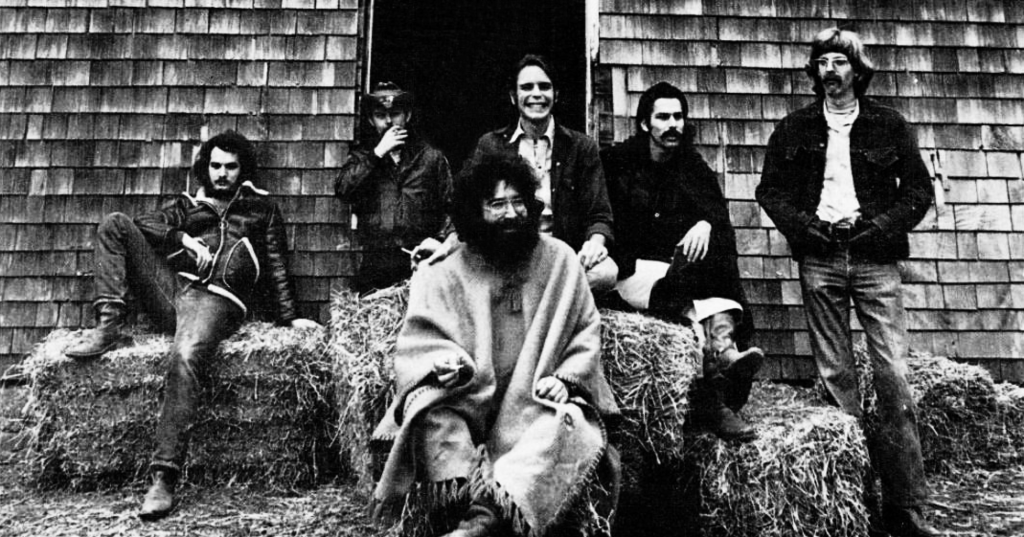
In Austria, for example — a place that is its own country and not, as many otherwise-intelligent people I know sometimes assume, a part of Germany — most culinary decisions revolve around chanterelle season, or Eierschwammerlzeit (EYE-ur-SHWAR-mul-TSITE, literally “egg-mushroom time”), which occurs in late summer and early fall. Austrians so adore the rather labial mushrooms (FORESHADOWING) that they refuse, even, to allow them to share the base, plebeian term for their brethren: All lesser edible mushrooms are simply fungi, or Pilzen, which is also the term for “yeast infection,” so.

When the season’s in, chanterelles find their way into every Austrian dish but dessert: soup, goulash, schnitzel, sauce, risotto, strudel (mit Dip!), “pockets,” stuffed peppers, fritters, dumplings. Even the wryest, grumpiest Austrian (being wry and grumpy is Austria’s national pastime) will visibly salivate at the onset of Eierschwammerlzeit, and lovingly explain to anyone who will listen that these delicate parasites are so fragile that instead of simply cleaning them, one must, as my friend Björn once explained, “polish” them.
The Danubian fervor over chanterelles, however, is understated compared to how Austrians’ neighbors in “the Federal Republic,” as they call it (usually with wry grumpiness), feel about the very short season of that goddamned Spargel which can, apparently, be prepared at the very least 4100 different ways.

Listen. I’ve shoved down plenty a stalk in my time in Germany, and it’s pretty good. It’s tender. It’s juicy and “toothy,” or whatever food people say to describe something that is, indeed, pretty good. Spargel makes a lovely soup, a sprightly side, and even 22 different kinds of crepe. I repeat: I like white asparagus fine. But I like it fine in the way I like, say, the weather in New York City on March 15, or washing my hair with the same shampoo for the seventieth time in a row. I’d rather eat white asparagus than any number of foods, but, and I say this with the greatest deference to the otherwise-superior tastes of the people who invented chocolate for children: I don’t see what the big deal is.
Oh, but try saying that to any German during Spargelzeit — a season so fervently observed that it even has its own official “end day,” the 24th of June, or Johannistag, which is one of the innumerable midsummer Christian holidays that shut the whole country down, like Mariä-Himmelfahrt and Pfingsten, that I never know exist until I try to go to the bank or run out of tampons.
“What’s the deal with Spargel?” I ask. “Why does everyone like it so much?” “Because it’s Spargel,” they say. “It’s Spargel.” “That’s a tautology!” I say, helpfully. “Tautologies don’t have any linguistic content! You’re not saying anything!” I insist. “Did Wittgenstein teach you nothing?” “Wittgenstein was Austrian,” they say. “And it’s Spargel.” God dammit.

At least white asparagus is pretty good, though. I will certainly eat it happily whenever it’s offered, even order it on purpose. The same cannot be said for another vegetable that has an incomprehensible following in Germany — literally the only vegetable that I, who for thirty years was a dedicated and avowed vegetarian, despise.
I’m talking about der Kohlrabi (coal-ROBbie), which literally translates to “cabbage turnip,” I am assuming because it possesses all of the negative qualities of both of those otherwise-benign edible plants.
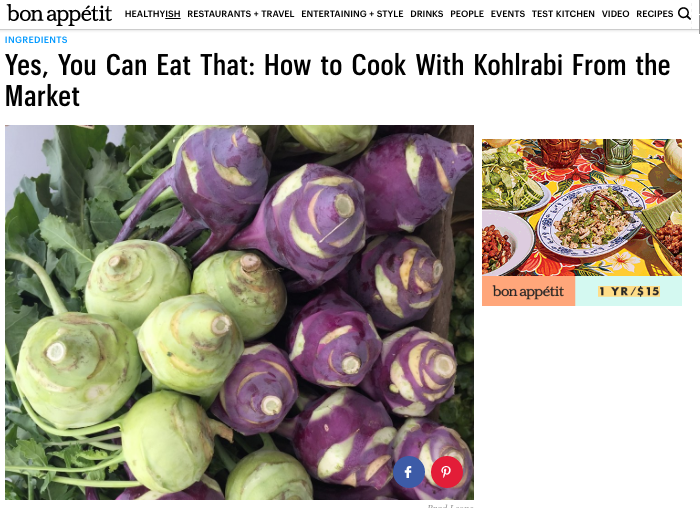
Like the cabbage (which Germans also famously love), the kohlrabi has multiple layers of leaf-like fibers. But where the cabbage is tender, the kohlrabi is tough like the hides of aged Germans who sunbathe in the buff. And like the turnip after which it’s named, the kohlrabi is also fat and round, but where the turnip is solid and sweet and roasts nicely, the kohlrabi is bitter and angry and tastes of damp winter and disappointment.
Perhaps Germans like the kohlrabi because, being obsessed with moderation, reason, personal restraint and balance, they need to indulge their bitter, dark winters with an appropriate vegetable, one that offers worthy foil to the Spargel, the undeniably dildonic herald of the warmer months. (FORESHADOWING FULFILLED! All short-seasonal produce over which German-speakers obsess resembles genitalia. THINK ABOUT IT.)
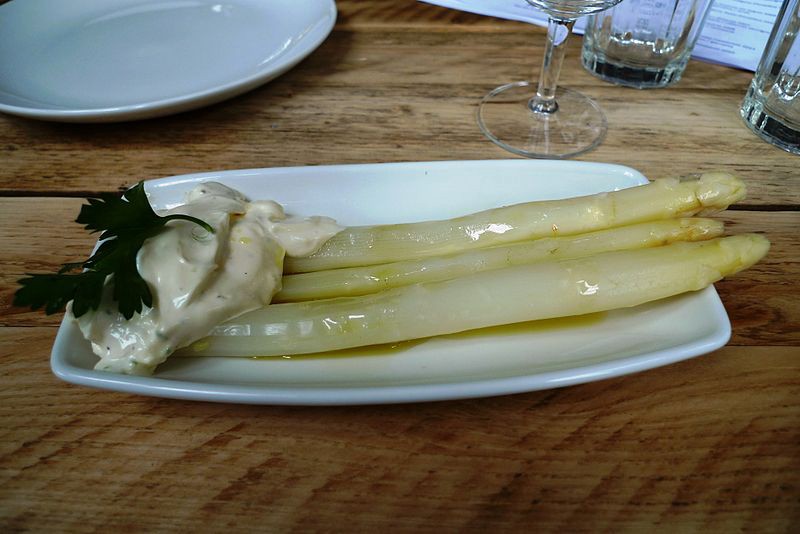
Anyway, a common German expression for how to get someone to do something is with both Zuckerbrot und Peitsche, (TSOO-kerr-broat oond PIE-schuh), literally “the treat and the whip,” which is what Germans say instead of “the carrot and the stick.” The kohlrabi, in this paradigm, is the stick, meant to balance out the luxury of the carrot, which in this case is asparagus (clearly). And if the primary use of the kohlrabi was to hit someone with it, I’d be down. As for eating it on purpose, even to contextualize the asparagus orgasm? I’d rather the business end of an actual whip.
The specific onset of Spargelzeit depends, of course, on the warmth of the preceding winter and the onset of spring, but it’s more or less now. So if you’re headed to the Fatherland for spring break or something (like I said, not those kind of nude beaches, but whatever), you best get ready for Asparagus Time.

Oh, and in case you’re wondering, the man in the story and his asparagus lived happily ever after — or, as the German fairy tales say, tautologically (and thus nonsensically): “If he’s not dead, then he’s still alive today.” With, I am guessing, some odd-smelling urine.
Soundscan Surprises 3/23
Back-catalog sales numbers of note from Nielsen SoundScan.
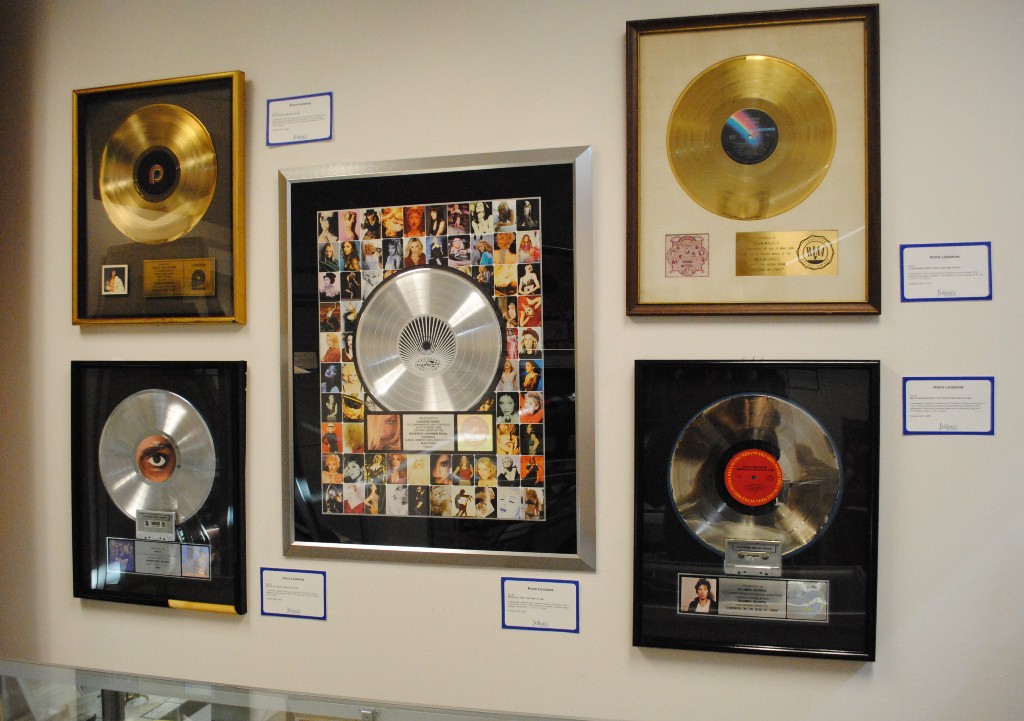
The definition of “back catalog” is: “at least 18 months old, have fallen below №100 on the Billboard 200 and do not have an active single on our radio.”
Chuck Berry died and Metallica is touring. The new Beauty and the Beast is driving people to buy the old soundtrack, which is great for Alan Menken. Mayday Parade is celebrating ten years of Lesson in Romantics (are you?). The Williams/Spielberg thing is a 40-year compilation and I think “BOP” stands for the Boston Pops.
But.
Wholetones? A “healing frequency music project?” Google this album and you will get a bunch of articles about playing this music for your dog to relieve his anxiety, or playing it while you work to “amp up” your productivity. According to this PR website it’s like acupuncture that you listen to:
How does Wholetones work?
1) The Open Door song helps in improving the blood flow to the bones, kidney and the brain.
2) The Desert Sojourn song helps in eliminating the stomach acid and improves digestion of food. This in turns provides energy to the body.
3) The Key of David song is beneficial for the overall health
4) Transformation song helps in improving the hormonal balance and restores them. It works throughout the lymphatic system and the nerve.
5) The bridge song: This song helps in healing the heart, giving peace and lifting mood.
6) Great awakening song helps with emotional and spiritual healing.
Well then. Now you know that spas do their part in record sales. Here’s a sample:
1. BERRY*CHUCK DEFINITIVE COLLECTION 5,643 copies
2. METALLICA AND JUSTICE FOR ALL 5,196 copies
3. METALLICA RIDE THE LIGHTNING 4,787 copies
18. BEAUTY & THE BEAST SOUNDTRACK 2,430 copies
36. DISTURBED SICKNESS 1,874 copies
55. BERRY*CHUCK BEST OF CHUCK BERRY-MILLENNIUM 1,583 copies
56. MAYDAY PARADE LESSON IN ROMANTICS 1,570 copies
111. PANTERA BEST OF PANTERA-FAR BEYOND THE 1,216 copies
117. TYRRELL*MICHAEL S. WHOLETONES: HEALING FREQUENCY 1,190 copies
138. WILLIAMS/BOP SPIELBERG/WILLIAMS COLLABORATE 1,104 copies
191. ZOMBIE*ROB PAST PRESENT & FUTURE 933 copies
Artists Talking About Their Work
The Adventures of Liana Finck

Liana Finck’s work appears regularly in the New Yorker, in Catapult, and on her Instagram feed.
Nils Frahm, "Brainwash"
Happy Piano Day

It’s Piano Day!
Piano Day! A celebration of the piano and everything about it! There will also be a ton of non-piano-related things that happen today, but it’s hard to get excited about MORE TERRIBLE SHIT THAT COMES DOWN ON US ALL THE TIME NOW DAY, so let’s just celebrate Piano Day today and tomorrow we can return our focus to all the terrible shit that comes down on us all the time now. Here’s something from Nils Frahm for you to enjoy. Piano Day!
BONUS: The folks at “Stockholm-based record label Feeder Recordings have three of their connected artists — Tired Tape Machine, Vargkvint and Jakob Lindhagen — each paying tribute to the ancient old instrument by recording a song each on a hundred year old, upright JG Malmsjö-piano.” Enjoy!
New York City, March 27, 2017

★ The minced chunks of food on the pavement were so waterlogged it was unclear whether they’d been spilled there directly or had passed in and out of someone’s stomach first. Like the distinction between the rain and the fog, it wasn’t worth considering more closely. What wasn’t raining was dripping. A chill pervaded the office. Eventually, too late, the clouds capitulated to a bleary and diffident sunlight.
